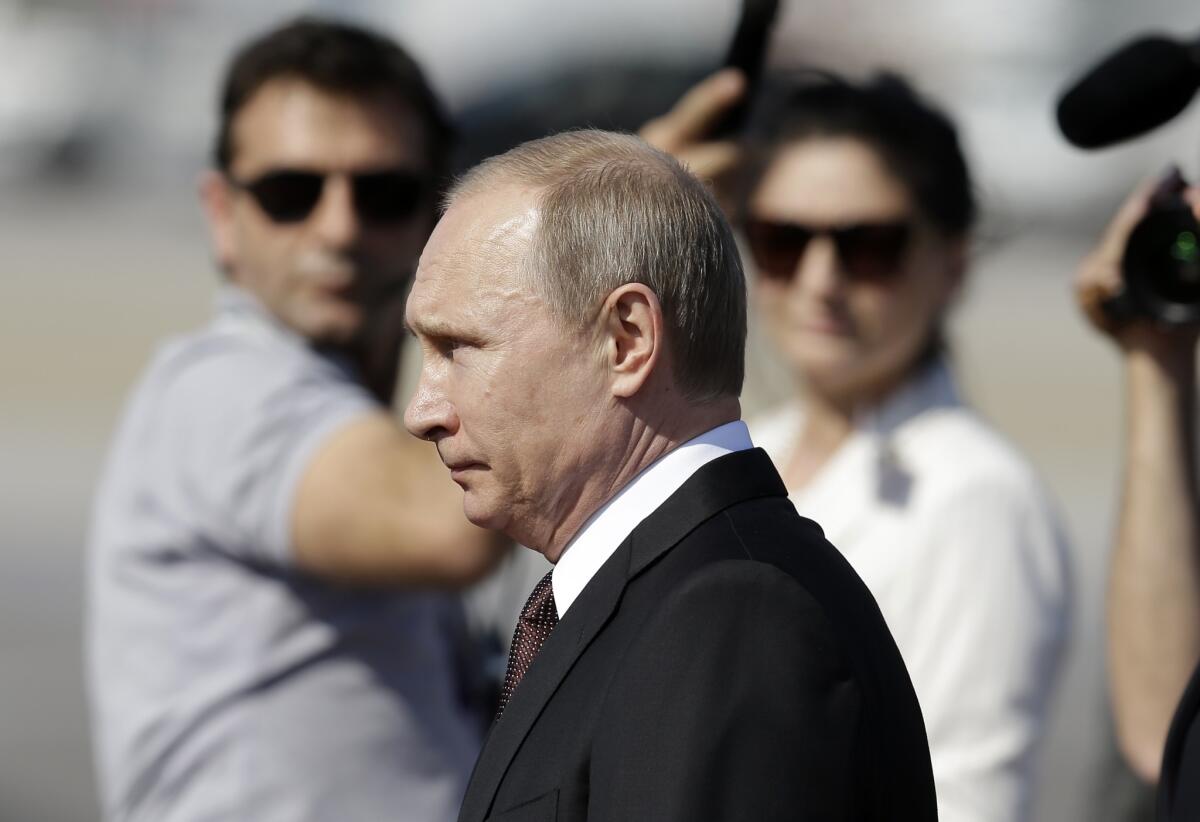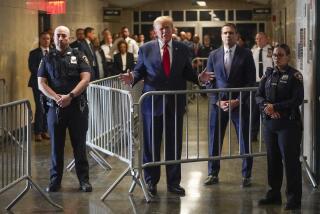Readers React: Russian aggression has shown the necessity of NATO enlargement

Russian President Vladimir Putin at the Athens international airport on May 27.
To the editor: Joshua R. Itzkowitz Shifrinson writes as if he thinks of NATO as a nation instead of what it is: international alliances bundled for military and diplomatic action. The “deal” agreed to by the U.S. in 1990 not to expand NATO was made with the Soviet Union, which no longer exists as such, but has had to liberate nations and peoples it enslaved to its west and south. (“Russia’s got a point: The U.S. broke a NATO promise,” Opinion, May 30)
The Russians are said to play chess famously well, the Americans to gamble poker style. Our people gambled that the Russians might turn out after 75 years or so internationally minded, especially regarding the use of force, including nuclear missiles galore.
It is bordering on the asinine to look into the archives to accuse the West of bad faith. Deals unravel. Pledges of good faith are merely pledges that not even God or the gods of justice can enforce.
The Russians under Vladimir Putin are indeed threatening their neighbors on the Baltic northwest and have gone aggressively into Crimea, at Georgia and into Ukraine. At least that is the news of the last decade.
Jascha Kessler, Santa Monica
..
To the editor: The Chinese turn some reefs into small islands in an adjacent sea thousands of miles from our western border, and the U.S. believes it appropriate to send in warships.
The U.S. facilitates an expansion of NATO to the borders of Russia, conducts war exercises with neighboring countries and builds missile stations, and yet this doesn’t justify Russian bellicosity?
An otherwise worthy report from Shifrinson is marred by his strange adherence to the assumption that NATO is a peaceful organization intending no harm. He should consult with the Libyans and the former Yugoslavians on that point.
John R. Yates, Los Angeles
Follow the Opinion section on Twitter @latimesopinion and Facebook
More to Read
A cure for the common opinion
Get thought-provoking perspectives with our weekly newsletter.
You may occasionally receive promotional content from the Los Angeles Times.






